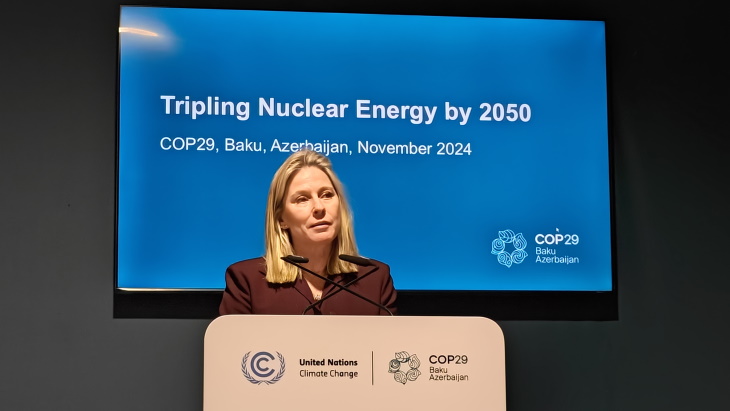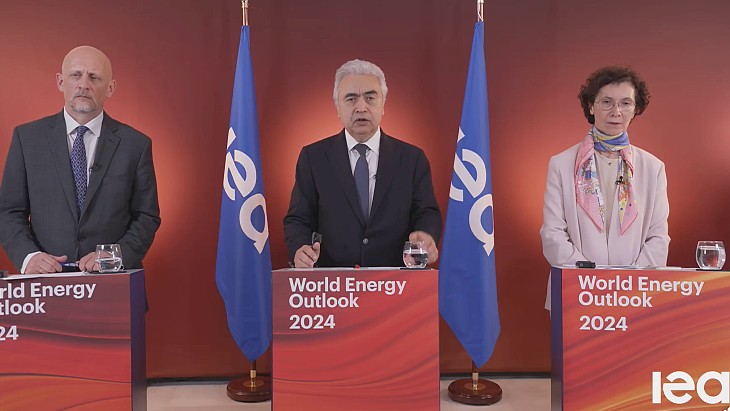UK committee says action needed on climate plan
The UK government must take urgent action to "flesh out" plans and proposals set out in its Clean Growth Strategy if the country is to meet its emission targets to 2032, according to the Committee on Climate Change. Reliance on nuclear energy to decarbonise power generation calls for the timely completion of Hinkley Point C and the construction of additional nuclear power plants, it said.
Under the UK Climate Change Act, the government is required to publish a set of policies and proposals that will enable the legally-binding carbon budgets, on track to the 2050 target, to be met. As part of the Act, the government needs to cut CO2 emissions by 57% from 1990 levels by 2050. In its Clean Growth Strategy, published in October 2017, the government sets out plans to meet the legislated fourth and fifth carbon budgets, covering UK emissions in the periods 2023-2027 and 2028-2032.
The Committee on Climate Change (CCC) yesterday published its findings and conclusions following an independent assessment of the UK's Clean Growth Strategy.
The CCC is an independent, statutory body established under the Climate Change Act 2008. Its purpose is to advise the UK government and devolved administrations on emissions targets and report to parliament on progress made in reducing greenhouse gas emissions and preparing for climate change.
The government has made a strong commitment to achieving the UK's climate targets, according to the committee. "It has placed the low-carbon economy at the heart of the UK's industrial strategy, framing the Clean Growth Strategy as a positive contribution to the economy (rather than a burden to be minimised)."
However, the CCC said: "Our assessment of the policies and proposals set out in the Strategy indicate that, even if these deliver in full, there remains a gap of around 10-65 million tonnes CO2 equivalent to meeting both the fourth and fifth carbon budgets on the basis of central projections."
CCC Chairman Lord Deben (John Gummer) said, "Urgent policy development is therefore required. We set out in this report our assessment of what is needed from the government by way of next steps - to firm up the current set of policies, proposals and intentions and develop further ways of closing the gap."
The government has set out plans for the decarbonisation of UK power generation to below 100 grams CO2 per kWh by 2030. The CCC said this "places a high reliance on new nuclear build and net imports across interconnectors, both of which have associated risks". It noted that the government's Energy and Emissions Projections "envisage an ambitious programme" of new nuclear build. The committee said for this to be achieved, it would expect contracts to be signed over the coming years.
The CCC suggests the government will need to "put in place a progress monitoring and contingency scheme to identify risks relating to delivery and, in the event that new nuclear plants are delayed or electricity imports lower, allow for additional low-carbon generation to be contracted".
The committee notes the strategy sets out three illustrative pathways to 2050, one of which excludes carbon capture and storage (CCS). "The government should not plan to meet the 2050 target without CCS."
Lord Deben said, "As it stands, the Strategy does not deliver enough action to meet the UK's emissions targets in the 2020s and 2030s. The government's policies and proposals will need to be firmed up as a matter of urgency - and supplemented with additional measures - if the UK is to deliver on its legal commitments and secure its position as an international climate change leader."
Researched and written
by World Nuclear News

_99697.jpg)










